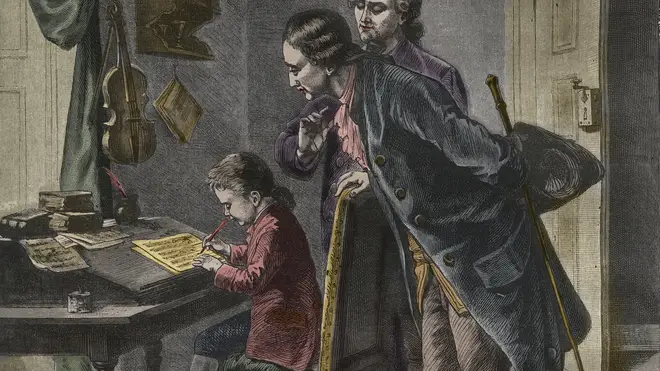On Air Now
Early Breakfast with Lucy Coward 4am - 6:30am
27 February 2020, 17:40 | Updated: 28 February 2020, 08:22
It’s a vignette about how people don’t come to classical concerts. But sadly, it’s more than that too.
An image shared widely in recent weeks shows two ticket windows: one with a long queue of people, the populated queue leads to a seller offering tickets to ‘repetitive, 3-chord music written in less than 10 minute’.
The second window stands with no one interested – it offers tickets to ‘extremely complex music that genius spent years writing’.
A watermark attributes the cartoon to Kevin Stafford, but we're not sure if the text is original or adapted by someone else as a meme (anyway, that's not really the point).
Sure, classical music does often struggle for audience interest and engagement, and we can talk about that. But in this image, we have a lot of classical elitism, rude denigration of what we don't like, and a whole heap of plain wrong.
Last year we addressed a similar meme that inaccurately asserted pop music has intrinsically less depth than classical. Here are our thoughts about the sentiments framed above.
Brahms laboured over his first symphony for 21 years, while the likes of Bach and Handel would have rolled off cantatas in a few short hours. Rapid-quilled Mozart would have definitely cracked out many a song or aria in a few minutes, and he was quite good wasn't he?

Yes, some music is harmonically and rhythmically complex and intricate. Think Berg's Violin Concerto, the fugal finale of Mozart's 'Jupiter' Symphony, or the tritone sub in the refrain of Britney Spears' Toxic.
Other pieces may choose to work with less complex ideas and forms. In his music, Arvo Pärt explores the simplicity of a single triad or the simple elegance of a AABA stucture which can found in songs from Franz Schubert to Ed Sheeran.
Musical complexity, musical simplicity or a whole mix of things – it's all fine. What you like to listen to, learn or study is entirely subjective. Oh and that word 'genius' is very subjective too.
This is clearly an attack based on the notion that much of pop music uses a narrow number of chords. True, four chords dominate much of popular music – there's actually a very interesting science behind why this is. And it has always been this way.
Famously, Pachelbel's Canon resembles a four-chord song. Its chord progression (notated in roman numerals for harmonic degrees of the scale) is I, V, vi, I (in first inversion), IV, I, IV, V. Simple enough.
Similarly, another funky Baroque progression known as La folia is also a four-chord song. It's been used as the foundation of works by composers from Vivaldi and Bach to Rachmaninov. Go tell Sergei he's repetitive.
Enjoy the magic of Corelli's masterpiece on this simple 'repetitive' progression.

La Follia (A. Corelli ) Score Animation
The only true simplicity here is anything that tells you there's a big, objective boundary between exclusive binary genres.
Blurred boundaries between classical forms and the popular music have been a thing for centuries. Gershwin and Stravinsky dived into jazz. Baroque greats composed suites in popular dance styles, and Chopin wrote salon music.
It of course happens in the other direction, with pop stars from Billy Joel and Paul McCartney to Brian Eno composing in classical forms. Oh, that's right, Kayne West just wrote an opera.
Forms and styles may have different characteristics, but strict boundaries in any art don't exist. Like what you like, admire what you admire, but music is music.
Classical music does have its challenges in communicating and attracting new audiences. But we can address these without denigrating the music other people enjoy, or giving the things we enjoy a false loftiness. It's just wrong.
Thankfully loads of people commenting on this meme on social media agree. We love what one Facebook user said: "Complex music isn’t necessarily good, and simple music isn’t necessarily bad. Not all virtuosity is effective or worthwhile. Just let music move people!"
Quite right!